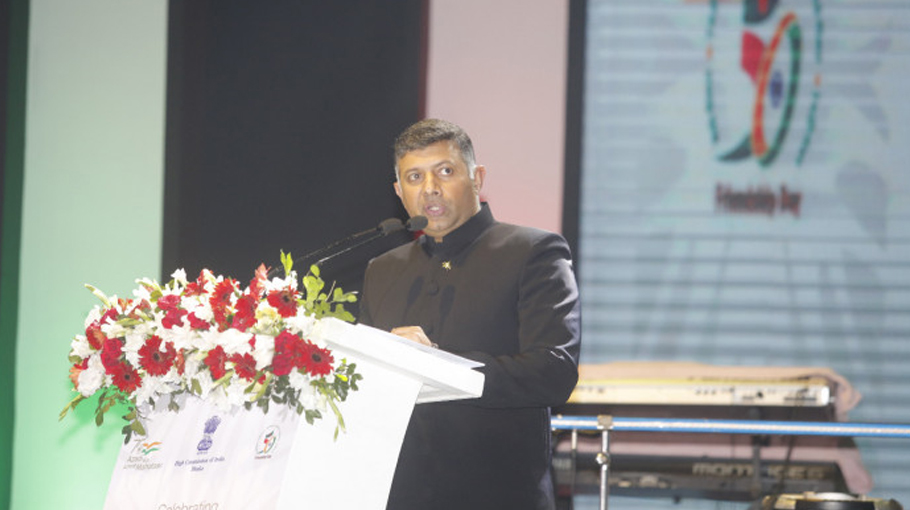Bangladesh changed S Asia’s ‘ideological map’: Doraiswami

Indian High Commissioner in Dhaka Vikram Doraiswami on Thursday extolled the secular identity of Bangladesh and said the country had changed the ‘ideological map’ of South Asia through its birth in 1971.
He said both India and Bangladesh had been able to resolve the long-standing issues when “there’s clear spirit of Bangladesh, when there was government and people in support of the idea of Bangladesh”.
The envoy was speaking at a discussion marking the 50 years of Bangladesh, India ties. The Sampriti Bangladesh, a citizens’ platform promoting secularism, organised the event with its Convener Pijush Bandyopadhyay in chair.
Liberation war affairs minister AKM Mozammel Haque, Fisheries and Livestock Minister SM Rezaul Karim also spoke at the discussion moderated by Prof Mamun Al Mahtab Shwapnil, Secretary General of Sampriti Bangladesh.
The 1971 liberation war began when the Pakistan army carried out genocide on March 25 with the 'Operation Searchlight' and continued that throughout the next nine months.
By that time, the brutal Pakistan army killed three million Bengalis and raped hundreds of thousands of women during the nine-month long war.
The final victory of Independent Bangladesh came on December 16, 1971 when 93,000 Pakistani army personnel surrendered before the joint forces of India and the Mukti-Bahini in Dhaka.
During the war, India stood firmly beside the homeless, unclad, hungry people of Bangladesh, the then East Pakistan. India provided food, clothing, shelter and protection to more than 10 million refugees during that period. India also provided necessary military training and weapons to the unarmed Bengali fighters.
The Indian army also actively took part in the war on behalf of the Bengalis, ignoring all the obstacles created by the hostile international community, resulting in quick victory for Bangladesh.
India also recognised Bangladesh on December 6, days before the final victory. The day was celebrated as Moitree Dibash this year.
Referring to that time of 1971, the Indian High Commissioner said within three months of liberation, almost all 10 million people were back.
“It speaks of the quality of cooperation between the leadership of the government in exile (Bangladesh) and the government of India at that time.”
Giving examples of resuming power generation as well as food supply within a short time of liberation, and supply of cholera medicines within 36 hours of the outbreak, he said, “none of this could have been possible had it not been from more than just strategic purpose to the war.”
“It was clearly a war of genuine friendship, a war of genuine affection. It cannot have been anything more than a partnership of peoples between closest friends, closest relatives,” he said, referring to India's engagement to the war.
Read more: Sheikh Kamal’s ideology should spread among youths: Razzaque
After the liberation, Father of the Nation Bangabandhu Sheikh Mujibur Rahman presented the constitution keeping secularism as one of the main pillars in the spirit of the liberation war.
The High Commissioner said the ideas of Bangladesh and the spirit of the liberation war, the values of Bangabandhu, and the values of freedom fighters of that time were unique in South Asia.
“That is the Bangladesh that changed not the political map of South Asia, but also the ideological map of South Asia. That is the Bangladesh that we should celebrate today on your 50th anniversary,” he said, adding that “it is your unique achievements that you put secularism in your constitution first.”
“Friendship between India and Bangladesh is guaranteed because a nation that is comfortable on its own identity that Bangladesh is will always be a friend to its neighbor,” he said.
“For us, we are deeply happy, and deeply satisfied with the Bangladesh and Bangladeshi people who are proud Bangladeshis,” he said.




